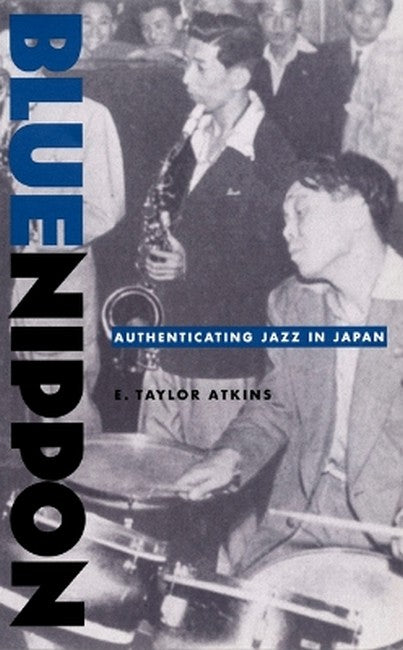E. Taylor Atkins is Associate Professor of History at Northern Illinois University.
Request Academic Copy
Please copy the ISBN for submitting review copy form
Description
List of Illustrations Acknowledgments Prelude: Plenty Plenty Soul 1. The Japanese Jazz Artist and the Authenticity Complex 2. The Soundtrack of Modern Life: Japan's Jazz Revolution 3. Talkin' Jazz: Music, Modernism, and Interwar Japan's Culture Wars 4. "Jazz for the Country's Sake": Toward a New Cultural Order in Wartime Japan 5. Bop, Funk, Junk, and That Old Democracy Boogie: The Jazz Tribes of Postwar Japan 6. Our Thing: Defining "Japanese Jazz" Postlude: J-Jazz and the Fin de Siecle Blues Notes References Discography Index
"Blue Nippon emerges from the author's mastery of jazz as a cultural medium, an in-depth knowledge of the scholarship on jazz as an intercultural and historical phenomenon, and from a concern to use cultural theory to come to terms with the specificity of the Japanese history of jazz."- Miriam Silverberg, author of Changing Song: The Marxist Manifestos of Nakano Shigeharu "This is a powerful gem of a book. Atkins's mixing of voices is wonderful and his scholarship impressive. Moreover, his complex argument is communicated in language that is straightforward, engaging, and compelling."- Christine Yano, University of Hawaii, Manoa "E. Taylor Atkins' lucidly written Blue Nippon is a welcome contribution to jazz scholarship as well as to Japanese cultural history."--Popular Music, October 2002 "Blue Nippon is the fullest account of the history of jazz in Japan to appear in any Western language to date ... groundbreaking ... Atkins's attempt to open up jazz discourse and history to the contributions of non-black, non-Americans is a brave and well-argued one. That his book should appear during a period of conservative retrenchment in jazz, as leading figures return to the comfort of racial and national stereotypes to deny the music's right to progress, is even more welcome."--Alan Cummings, THE WIRE, December 2001

